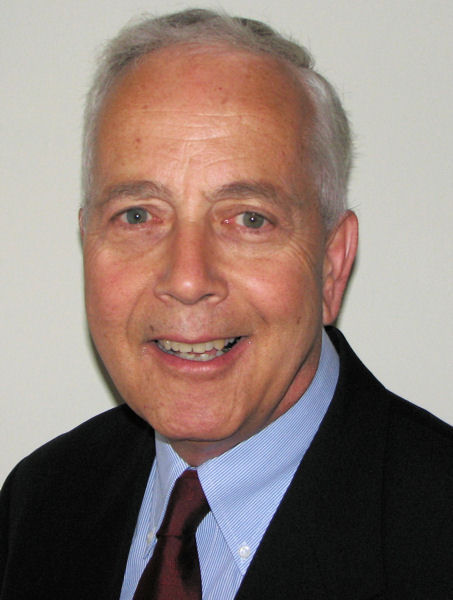
James (Jim) E. Smith Jr. has been recognized as a 2017 Water Environment Federation (Alexandria, Va.) for his contribution to biosolids management and education around the world. Photo courtesy of Smith.
James (Jim) E. Smith Jr., grew up in a family that worked in water. His grandfather operated a fishing boat and his uncle managed a Greater Cincinnati Water Works water resource recovery facility (WRRF).
“I always loved being in and around water,” Smith said. This love led him to enter a more-than-50-year career that began at his uncle’s WRRF, the City of Cincinnati Mill Creek Wastewater Treatment Facility, and continues with the U.S. Environmental Protection Agency (EPA).
In 1966, Smith joined both the Water Environment Federation (WEF; Alexandria, Va.) and Ohio Water Environment Association (WEA) and began attending WEFTEC. “WEF offered me the opportunity to meet people like myself, as well as to keep up with the latest developments in the wastewater field,” he said.
WEF recognized Smith’s professional achievements and contributions to its practice areas by honoring him as a 2017 WEF Fellow.
Engineering studies lead to influential career in water
Smith earned a bachelor’s degree in engineering-physics and a master’s degree in civil and environmental engineering, both from the University of Cincinnati. He also has a doctorate degree in civil and environmental engineering from Washington University (St. Louis, Mo.).
In 1968, Smith began working for the EPA as a research sanitary engineer. While at the EPA, he moved up the ranks to director of the Municipal Technology Transfer Division, then senior environmental engineer in the Center for Environmental Research Information, then senior research environmental engineer. He has managed a research laboratory that investigated improved methods for solids disinfection, stabilization, and dewatering; chaired EPA’s Pathogen Equivalency Committee; and worked for several United Nations agencies.
“Working for the U.S. EPA has provided me many unique opportunities to participate in workshops, seminars, and conferences throughout the USA and world,” Smith said.
Smith has helped develop plans to manage biosolids and reviewed solids-management programs both in the U.S. and in other countries. He has coordinated educational events and hands-on workshops to demonstrate proper procedures to handle hazardous waste and made more than 150 presentations on various water, wastewater, and hazardous-waste-management topics.
During his career, Smith has participated in research projects investigating residuals management; water and wastewater treatment; and the treatment and disposal of small quantities of hazardous waste. While working for the World Health Organization Division of Environmental Health in Geneva, he conducted various marine, water, and wastewater studies, and he founded its hazardous waste program.
Earning recognition for achievements
Being named a WEF Fellow is not the first recognition Smith has received. The WEF and Ohio WEA life member has been on WEF’s Residuals and Biosolids Committee since 1998. In 2009, the committee presented Smith with its Pioneer Award, recognizing developers of disinfection practices in the water sector.
In 1997, the American Society of Civil Engineers (Reston, Va.) awarded Smith its State-of-the-Art of Civil Engineering Award for the “Technology Transfer Handbook: Management of Water Treatment Plant Residuals.” In 2004, he was invited to become a member of the National Homeland Security Research Center’s Read Team for his technical expertise in wastewater and residuals management. Smith also has received several awards from EPA including
- Distinguished Career Service Award in 2009,
- Director’s Award for Outstanding Residuals and Disinfection Research in 2009,
- Bronze Medal awarded to the Biosolids Action Plan Team he was a part of in 2004,
- Special Recognition Award for exceptional technical assistance to the program office in 2002, and
- Bronze Medal for commendable service in the sludge/biosolids research area in 2000.
Smith attributes many of his career-related opportunities to being an involved WEF member. He encourages others to follow in his footsteps because “it is a very rewarding experience,” he said.
— Jennifer Fulcher, WEF Highlights
Follow WEF Fellows’ Stories in WEF HighlightsThe Water Environment Federation (WEF; Alexandria, Va.) Fellows program recognizes the professional achievements and contributions WEF members have made to the preservation and enhancement of the global water environment in practice areas served by the organization. In 2017, WEF bestowed this honor on 11 individuals. See a video featuring interviews of the 2017 WEF Fellows. Each of these recipients will be featured in future issues of WEF Highlights. Follow these stories with the keyword WEFFellows17. |








July 31, 2018
Featured